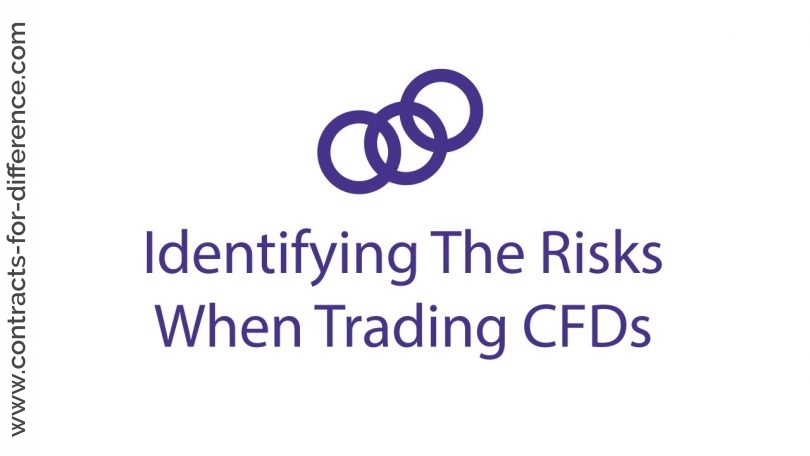The recent review of the CFD industry by the Australian Securities and Investments Commission has highlighted the risks of CFDs. Love them or hate them, it seems that their ever growing popularity will ensure that CFDs are going to be with us for a long while still so it makes sense to fully understand the benefits and risks of using contracts for difference to trade.
How well do investors understand CFD risks?
Regulatory antennae in Australia were recently raised when the authorities found from a survey that a large number of retail players in the CFDs market were careless of the risks associated with the instrument.
You hear a lot about the advantages of using contracts for difference to increase your trading income compared to other investments, but with the benefits come implicit risks that you need to watch for so that your trading is successful. Unfortunately, some unscrupulous operators and investor seminars are happy to market CFDs as ‘easy’ trades, rather than disclosing their complexity and risk. In some of the educational seminars offered by CFD providers, risks were downplayed in relation to the potential benefits and the seminars merely serve as a promotional tool for the broker’s products. In the right hands, contracts for difference can definitely bring the kinds of rewards most investors only dream of – annual gains of 150 per cent and even higher have been reported by a privileged few. However, many people who trade on margin do so for entirely the wrong reasons. They typically have too few funds and/or hate their day jobs and want to be their own boss and make quick money. It does not usually work out that way, particularly if you jump straight from your day job to trading or retire and then take it up.
The products give an investor the advantage of owning a stock without physically buying a share but are seen as controversial because people can borrow money to invest in them – exacerbating losses if investors make a wrong call. CFDs also allow you to take a much larger interest in a financial security than you could afford to buy. That is one of their selling points, as the gearing or leverage that you have with CFDs lets you multiply up your gains beyond what is available with simple trading. But in the euphoria of this discovery, some traders pay little attention to the fact that they will inevitably have some losing trades, and the losses are also multiplied.
The problem is that some traders who attempt to trade CFDs think only about the profits they can make rather than the risks they are taking. What is even more surprising to the novice is that, once you have made your trade, you may be asked for additional money to keep the position open. You literally can lose more than you staked. One way of mitigating your losses is to place a stop loss order with your broker whenever you trade, but even these are not guaranteed to prevent additional loss if the market is moving quickly.
No one should trade CFDs unless they are prepared to educate themselves on the subject and I strongly agree with ASIC that CFDs are only suitable for those who are experienced traders that possess the knowledge, risk control and financial capacity to trade such instruments.
Nonetheless, if the market moves against you, but you are convinced that your analysis will pay off and you want to keep the position open, then you need to have ready money available. The broker is entitled to close your position to limit his potential loss if you do not get more money into your account quickly, and it would be frustrating if this happened just before a turnaround that you had anticipated. You have no recourse if this happens, but must just take the loss.
With the proliferation of CFD dealers due to the popularity of the instrument, you might also want to choose between the bigger companies. Some smaller ones, particularly those newly set up offshore, may have insufficient resources to ensure that your trades are covered if you profit, and if they are outside the legal jurisdiction where you reside the recovery of any outstanding funds may prove to be problematic.
These factors are risks even if you are trading well, and having your percentage of gains. Other risks include your own trading habits. For instance, if you have had a run of successes, it can be a natural reaction to think that you have ‘cracked it’, and understand the workings of the market, and that can lead you to trading larger amounts. Unfortunately, the markets will usually pay you back for overconfidence, and you may find that the leverage of CFDs comes as a nasty shock in this situation.
The other reaction is to try and ‘catch up’ if you have had some losses, and again trade with more than a wise amount in an attempt to strike it big. Obviously, while you are not in the emotion of the moment, you would agree this is foolish, but you would be surprised how many people succumb to this mistake. The answer is to have true discipline in your trading system.
Understanding the Risks of trading CFDs
Trading CFDs involves considerably more risk than ordinary share dealing and because of this will not be suitable for everyone. At the present time we are seeing more interest in margin-traded products due to poor returns on cash but investors should always be aware of the risks involved with leveraged trading. Those considering opening a CFD account would be well advised to consider the potential pitfalls, the most significant of which comes from trading on margin. As Tamas Szabo, CEO of IG Markets puts it there is the risk for the investor to lose more than their initial investment amount. ‘The amount of money you put up with a provider is a deposit – it is not the total amount of money that you are risking,’ he says. ‘They are suitable for people who have risk capital, who have money they can afford to lose.’
Margin trading has the effect of multiplying relatively small moves in the underlying and as such will magnify both profits and losses. For example, trading on a typical margin balance of 10% has the effect of gearing up returns by a factor of 10 times so that a 5% adverse movement in the underlying market would wipe out half the deposited funds. However, the amount of margin utilised is in the traders’ hands and when leverage is used responsibly the risk is perfectly manageable; problems often stem from investors not knowing what they’re doing.
CFD trading is not gambling, but the problem is that a number of those attempting to trade CFDs are gamblers. The ASIC report highlighted the dangers facing unpretentious CFD traders (borrowing for gambling). It’s all well if the price of the underlying market is going your way. But on the reverse the picture can get very nasty.
Australian Securities and Investments Commission Report
Contracts for difference (CFDs) have been under scrutiny by the Australian Securities and Investments Commission (ASIC), but they are still a useful investment tool if you know what you’re doing. In a consultation paper, ASIC specifically identifies some of the risks faced by retail investors in OTC CFDs, namely poor investor understanding of leverage and volatility, unanticipated or poorly managed margin calls and the need to better communicate the high-risk nature of these products. In particular, ASIC highlighted the leverage risk and it uses an example of an investor who puts up $5000 to take out a $100,000 position. For instance, ASIC came across a particular investor who had borrowed money against his home to invest in shares, another who had used his credit card to establish an account and a third who had invested his entire self-managed superannuation fund in CFDs.
In addition, independent statistics back ASIC’s fears, with 38% of the 9644 traders surveyed for Investment Trends’ 2010 CFD research report stating they lost money in CFD trading over the previous 12 months, including 12% who lost more than 50% of their investment. The average percentage of winning trades over the last 12 months was 44%, with 41% losing and the rest breaking even. The industry watchdog understands that the problem is not really with CFDs, but with how investors use them but it still wants to hold CFD providers responsible for vetting potential clients on their suitability to be CFD traders.
Summary and Final Thoughts
There are real risks when trading CFDs and some of them can be difficult to assess. These include not only the risk of leveraged trading but also other risks like counterparty risk, client money risk, slippage risk, gapping and execution risk – and all these could result in losses you did not expect so it is important that you take these risks into consideration when choosing a CFD provider to trade with.
CFDs are not to be traded by everyone and investors should have a good understanding of how the product works and the risks associated with them prior to investing. No matter what your reason for trading, you need to also pay special attention to the amount of money that you allocate to your trading account. What would your financial situation be if you were to lose the whole lot?
Margin trading requires special skills, along with discipline. Without discipline, it is only a matter of time before you whittle away the capital in your trading account until you either give up or get the education you should have started with.
Buffet once said that risk comes from not knowing what you’re doing. Derivatives were originally invented to limit risk, CFDs are only risky if you misuse them. Also, as with any financial product, the risks will be significantly higher if you don’t take the time to understand the product. Stick to your strategy, set some limits on the length of time you are willing to invest and the amount of loss you are willing to incur, limit your downside on each trade and run your profits.






